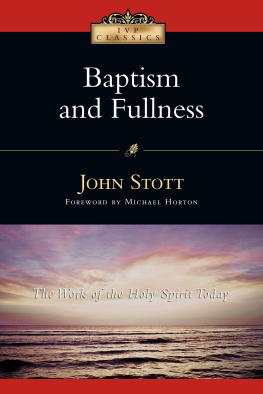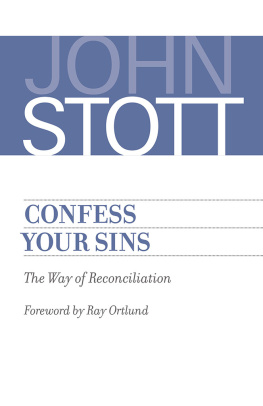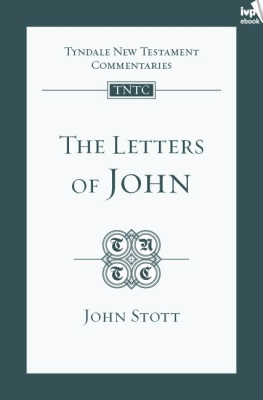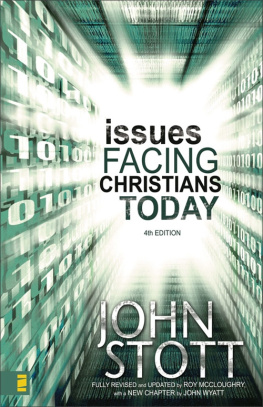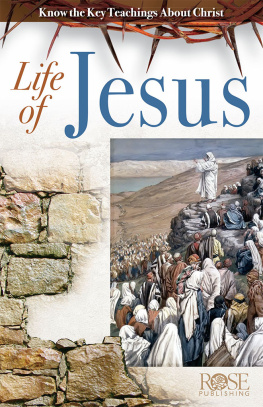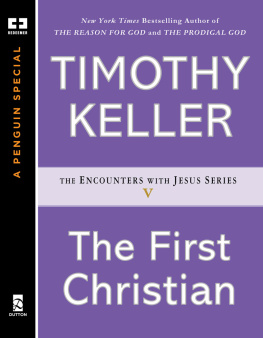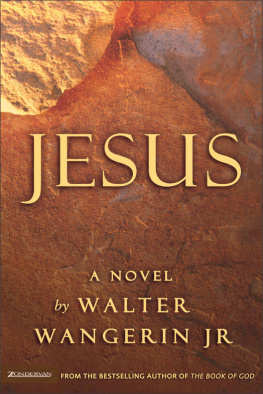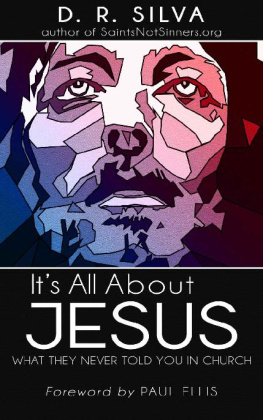Dedicated
to the memory of
Canon Miles Thomson
Rector of St Nicholas Church, Sevenoaks, Kent,
19872000,
and a good soldier of Jesus Christ
Contents
Francis Thompson
Saul of Tarsus
Augustine
Malcolm Muggeridge
C. S. Lewis
Fulfilment
Intimacy
Authority
Christ died to atone for our sins
Christ died to reveal the character of God
Christ died to conquer the powers of evil
The glory
The shame
The paradox
Freedom from
Freedom for
The quest for transcendence
The quest for significance
The quest for community
Two affirmations
Two invitations
Conclusion: RSVP
Preface
It was on 6 March 1927 that Bertrand Russell gave a public address in Battersea Town Hall, South London, entitled Why I am not a Christian. It made quite a sensation at the time, partly because of the well-known eloquence of the speaker, and partly because of his sheer outspokenness. Thirty years later his speech was published in a collection of his essays. It was chapter 1, and it gave its title to the whole book.
In his preface Bertrand Russell wrote: I think all the great religions of the world...both untrue and harmful (p. xi). Although he had some difficulty in defining the kind of Christian he declared he was not, he was able to demolish to his satisfaction the traditional arguments for the existence of God.
In writing this short book entitled Why I am a Christian , I am not presuming to rebut Earl Russells arguments point by point, for I acknowledge his brilliance as mathematician-philosopher, Nobel Prize-winner for literature and champion of logic and liberty. But I also acknowledge that there is a case to be made for Christianity that Bertrand Russell did not make or even consider.
I am grateful to Richard Bewes, Rector of All Souls Church, Langham Place, London, for inviting me in 1986 to preach four sermons on this topic. Among those who later listened to the tapes was my friend, the late Miles Thomson, Rector of St Nicholas Church, Sevenoaks. He kept urging me to write up those four sermons into a book and to add a chapter or two. Such a book, he wrote, would provide a fuller introduction than any of the current smaller booklets. At the same time, it would not be too heavy or too big for a genuine enquirer who wants to think through the implications of becoming a Christian.
So, having yielded to Miles Thomsons importunity, I dedicate this modest piece to his memory. Mils is Latin for soldier, and that is what Miles was, a good soldier of Jesus Christ.
I thank my friends Paul Weston and Roger Simpson for reading the typescript of this book. They made a number of suggestions, most of which I have adopted. I also thank Stephanie Heald, IVPs Senior Commissioning Editor, for her attention to detail. In addition, I am extremely grateful to Frances Whitehead, my secretary for forty-seven years, for producing yet one more flawless text.
I confess that I have freely borrowed for this text from what I have written in other contexts, especially in The Contemporary Christian (1992). But I have been assured, by friends and publishers alike, that this overlap does not matter, since my personal statement or story in this book can stand on its own feet.
John Stott
New Year 2003
Chapter 1
The Hound of Heaven
Rapid travel and the electronic media have made us all aware (as never before) of the multiplicity of religions in the world. So how on earth can we decide between them? There is a Babel of voices competing for our attention. To which are we going to listen? We are presented with a veritable religious smorgasbord . So which dish are we going to choose? In any case, do not all religions lead to God?
It is against this pluralistic background that I want to answer the question: Why am I a Christian? Some readers will expect me to answer like this: Im a Christian because I happen to have been born in a largely Christian country. My parents were nominally Christian, I went to a school with a Christian foundation and I received a basically Christian education. In other words it was the circumstances of my birth, parentage and upbringing that have determined the fact that I am a Christian. And that is, of course, perfectly true. But it is only a part of the truth. For I could have repudiated my Christian inheritance. Many people do. And there are many others who become Christians who have not had a Christian upbringing. So that is not the complete answer.
Others may expect me to reply something like this. On 13 February 1938, when I was a youth of nearly seventeen, I made a decision for Christ. I heard a clergyman preach on Pilates question, What shall I do with Jesus, who is called Christ? Until that moment I didnt know I had to do anything with Jesus, who is called Christ. But in answer to my questions, the preacher unfolded the steps to Christ. In particular, he pointed me in the New Testament to Revelation 3:20, in which Jesus says: Here I am! I stand at the door and knock. If anyone hears my voice and opens the door, I will come in and eat with him, and he with me. So that night, by my bedside, I opened the door of my personality to Christ, inviting him to come in as my Saviour and Lord.
That also is true, but it constitutes only one side of the truth.
The most significant factor lies elsewhere, and it is on this that I intend to concentrate in this first chapter. Why I am a Christian is due ultimately neither to the influence of my parents and teachers, nor to my own personal decision for Christ, but to the Hound of Heaven. That is, it is due to Jesus Christ himself, who pursued me relentlessly even when I was running away from him in order to go my own way. And if it were not for the gracious pursuit of the Hound of Heaven I would today be on the scrap-heap of wasted and discarded lives.
Francis Thompson
The Hound of Heaven. It is a striking expression invented by Francis Thompson, whose story has been told, and his poem expounded, by R. Moffat Gautrey in his book This Tremendous Lover .
Francis Thompson spent a lonely and loveless childhood, and failed successively in his attempts to become a Roman Catholic priest, a doctor (like his father) and a soldier. He ended up lost in London until a Christian couple recognized his poetic genius and rescued him. Throughout these years he was conscious of both pursuing and being pursued, and expressed it most eloquently in his poem the Hound of Heaven. Here is its beginning:
I fled Him, down the nights and down the days;
I fled Him, down the arches of the years;
I fled Him, down the labyrinthine ways
Of my own mind; and in the midst of tears
I hid from Him, and under running laughter.
Up vistaed hopes I sped;
And shot, precipitated,
Adown Titanic glooms of chasmd fears,
From those strong Feet that followed, followed after.
But with unhurrying chase,
And unperturbd pace,
Deliberate speed, majestic instancy,
They beat and a Voice beat
More instant than the Feet
All things betray thee, who betrayest Me.
At first R. M. Gautrey was offended by the poems title The Hound of Heaven. Is it appropriate, he asked himself, to liken God to a hound? But he came to see that there are good hounds as well as bad hounds, and that specially admirable are collies, which range the Scottish Highlands in search of lost sheep. He also saw that the theme of searching sheepdogs (or, more accurately, of searching shepherds) occurs in both the Old and the New Testament. Thus, the last verse of Psalm 23 reads:
Surely goodness and love will follow me
all the days of my life,
and I will dwell in the house of the L ORD for ever.
Gautrey points out that the Hebrew word here translated by the mild verb follow should be rendered more forcefully; for instance, goodness and mercy have hunted me, haunted me, dogged my steps all the days of my life.
Next page

